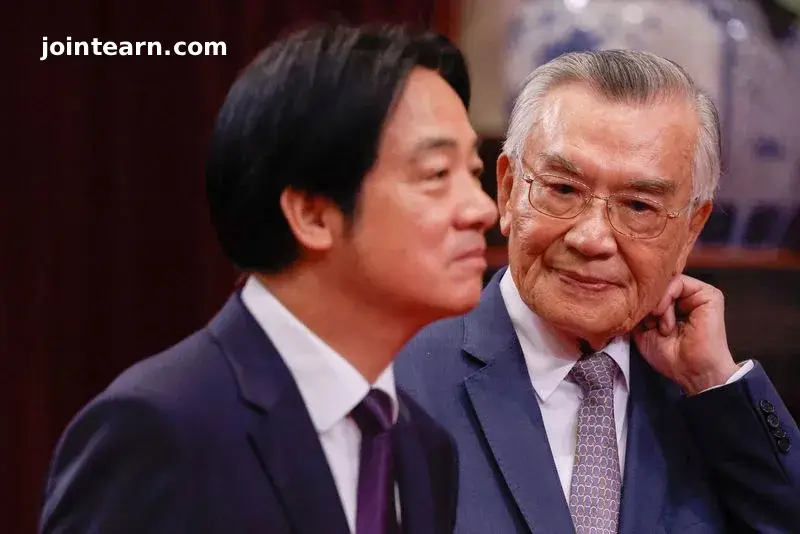
GYEONGJU, South Korea — October 30, 2025 — Taiwan’s senior trade negotiator confirmed on Thursday that she met with a top U.S. trade official on the sidelines of the Asia-Pacific Economic Cooperation (APEC) summit in South Korea, as Taipei continues to seek relief from steep American tariffs on its exports.
The discussions, though confidential, mark another step in the ongoing U.S.-Taiwan trade dialogue, which has yet to yield a formal tariff reduction agreement.
Taiwan Seeks Progress on Tariff Relief
Speaking to reporters in Gyeongju, Jenni Yang, Taiwan’s top trade negotiator, said she held “productive exchanges” with Deputy United States Trade Representative Rick Switzer during the APEC leaders’ meetings.
“We had discussions on trade matters of mutual interest,” Yang told the press, without elaborating on the content of their talks. “Details will be released in due course.”
Currently, Taiwan’s exports to the United States are subject to a 20% tariff, part of broader U.S. trade policies reshaped by recent economic protection measures. However, semiconductors — Taiwan’s most valuable export — remain exempt from these duties.
Despite multiple rounds of negotiations throughout 2024 and 2025, both sides have yet to finalize a tariff deal that would further deepen trade and investment cooperation.
Semiconductors at the Core of Negotiations
Taiwan remains a critical player in the global semiconductor supply chain, producing the majority of the world’s advanced chips through companies such as Taiwan Semiconductor Manufacturing Company (TSMC). These chips power technologies ranging from artificial intelligence (AI) systems to defense equipment and electric vehicles.
Reports last month suggested that U.S. Secretary of Commerce Howard Lutnick proposed a “50-50 chip production partnership” between American and Taiwanese firms to balance technological collaboration and manufacturing security.
However, Taipei rejected the proposal, emphasizing its commitment to maintaining autonomy in semiconductor production.
“Taiwan has a duty to safeguard its strategic industries and ensure that technology cooperation aligns with our national interests,” Yang said in previous statements.
Still, officials in Taipei have expressed openness to creating a “high-tech strategic partnership” with Washington, focusing on joint R&D initiatives, supply chain security, and AI innovation.
Broader Economic Context
The United States remains one of Taiwan’s most important trading partners, importing tens of billions of dollars’ worth of electronics, chips, and high-tech components each year. Taiwan also runs a significant trade surplus with Washington, which has prompted calls from U.S. lawmakers to rebalance trade flows through new tariff frameworks.
The Biden and Trump administrations have both pursued policies aimed at “reshoring” semiconductor production and reducing dependence on overseas supply chains — a strategy that has increased both competition and collaboration with Taipei.
At the same time, Taiwan’s participation in APEC is politically sensitive. Because of Beijing’s objections to its formal recognition, Taiwan attends the summit as “Chinese Taipei” and is typically represented by an envoy rather than its president. This year, however, President Lai Ching-te held a pre-summit press conference emphasizing the island’s role in promoting free trade and regional stability.
Awaiting Official Outcomes
As of Thursday, the U.S. Trade Representative’s office in Washington had not issued any comment on the meeting. Analysts suggest that any future deal between the U.S. and Taiwan will depend on wider Indo-Pacific trade strategies, particularly as Washington balances its relationships with allies such as South Korea and Japan while managing economic tensions with China.
Despite the absence of a formal announcement, experts see the talks as an encouraging sign that both sides are working toward a long-term framework for tariff relief and high-tech cooperation.
“Even without a breakthrough, sustained engagement between Taiwan and the U.S. at the APEC level signals deeper economic alignment,” said Dr. Grace Lin, a Taipei-based economist specializing in international trade.
Looking Ahead
With APEC leaders continuing deliberations through the weekend, Taiwan’s negotiators are expected to hold further informal talks with U.S. officials and other regional partners.
The 2025 APEC summit in Gyeongju has already been dominated by trade realignments and diplomatic breakthroughs — including U.S. President Donald Trump’s new investment deal with South Korea and Chinese President Xi Jinping’s call for global free trade.
For Taiwan, however, the focus remains clear: securing tariff relief, protecting its semiconductor edge, and strengthening its trade partnership with the United States amid intensifying global competition.


Leave a Reply